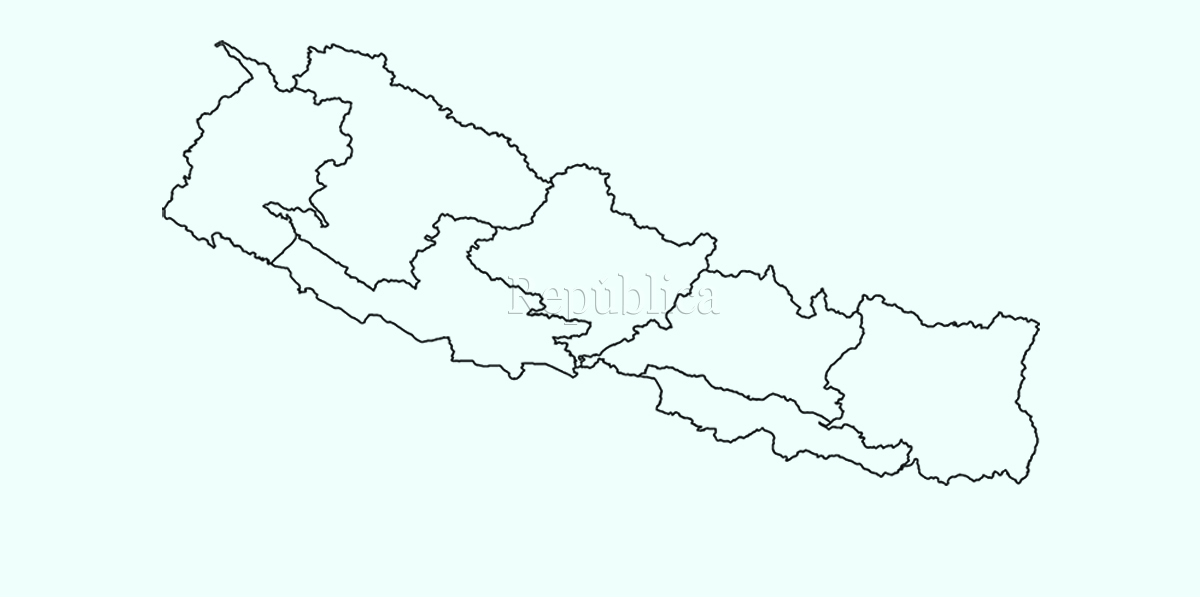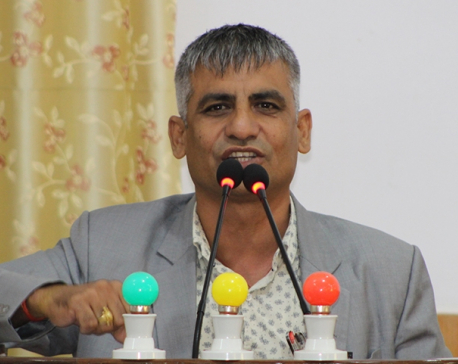
OR
Editorial
Reduce number of ministries in provincial governments
Published On: January 12, 2023 07:53 AM NPT By: Republica | @RepublicaNepal

Nepal embraced a federal system of governance with three tiers of governments, namely federal, provincial, and local government, in 2015. Each level of government has its own set of responsibilities and powers, as outlined in the constitution promulgated through the Constituent Assembly in 2015. Provincial governments, in particular, play a crucial role in delivering public services and acting as bridges between federal and local governments to implement plans and policies of the federal government. However, the number of ministries in provincial governments in Nepal is currently quite high as ministries were split unnecessarily and without any rationale to appease the coalition partners. It is good to note that the newly-appointed chief ministers in various provinces have announced their plans to reduce the number of ministries. Chief Minister of Province 1 Hikmat Kumar Karki was the first to announce his plan to reduce the number of ministries to nine from existing 12 ministries. Chief Minister of Bagmati Province Shalik Ram Jamkattel followed suit and announced a similar plan. The Bagmati provincial government has a total of 14 ministries. On Wednesday, Chief Minister of Karnali Province Raj Kumar Sharma also pledged to reduce the number of ministries in the provincial government, which now has eight ministries. This is a positive development given the fact that there are already growing concerns that the country’s economy cannot afford to bear the expense of the provincial governments.
In fact, the high number of ministries in the provincial government can lead to a number of problems in day-to-day governance. One major issue is that having too many ministries can lead to duplication of effort and a lack of coordination between different governmental departments. This results in inefficiency and a lack of accountability, as evident in various provinces in Nepal. Another problem with having a large number of ministries is that it can be costly to maintain. Each ministry requires its own staff, offices, and budget, which can put a significant strain on the provincial government's finances. Additionally, having so many ministers and staff can also lead to corruption and nepotism, as there may be pressure to appoint friends and family members to high-paying government positions. Reducing the number of ministries in provincial governments in Nepal would address these issues by streamlining the operations of provincial governments and making them more efficient and accountable. By consolidating some of the ministries, the government would be able to focus its resources on the most important priorities and ensure that all provincial government bodies are working together to achieve common goals.
Needless to say, provincial governments in Nepal have been controversial for a number of reasons. One of the main reasons for the controversy is the lack of clarity and consistency in the roles and responsibilities of the different levels of government. The Constitution of Nepal devolves significant powers to the provincial and local governments, but there has been confusion and disagreement over how these powers should be exercised in practice. This has led to disputes between the federal government and the provinces, as well as between different provinces themselves, over issues such as budget allocation and service delivery. It is high time all concerned parties worked together to address these concerns while reducing the number of ministries to ensure smooth functioning of the provincial governments. Reducing the number of ministries in the provincial governments is a must to improve efficiency and coordination of government operations and reduce the costs of maintaining the federal system of governance in the country. The more streamline the organization the better it will be to serve the citizens. This will also give more room to focus on key priorities ensuring good governance. We appreciate the decision taken by three of the seven chief ministers to reduce the number of ministries in provincial governments and wish to see the remaining four other chief ministers also to take similar decisions for the sustainability of the country’s nascent federal system of governance.
You May Like This

NC's Karki stakes claim for Koshi Chief Minister position with support of UML
BIRATNAGAR, Oct 12: Nepali Congress (NC) provincial assembly member Kedar Karki has staked a claim for the position of Chief... Read More...

Simple ways to give back to the environment
There are simple ways that you can do every day in order to help our environment. All these things are... Read More...

Adamant provincial law minister protests in front of NRB's branch office
JANAKPUR, Sept 2: The Minister for Internal Affairs and Law for Province 2, Gyanendra Kumar Yadav protested in front of... Read More...



Just In
- World Malaria Day: Foreign returnees more susceptible to the vector-borne disease
- MoEST seeks EC’s help in identifying teachers linked to political parties
- 70 community and national forests affected by fire in Parbat till Wednesday
- NEPSE loses 3.24 points, while daily turnover inclines to Rs 2.36 billion
- Pak Embassy awards scholarships to 180 Nepali students
- President Paudel approves mobilization of army personnel for by-elections security
- Bhajang and Ilam by-elections: 69 polling stations classified as ‘highly sensitive’
- Karnali CM Kandel secures vote of confidence















Leave A Comment